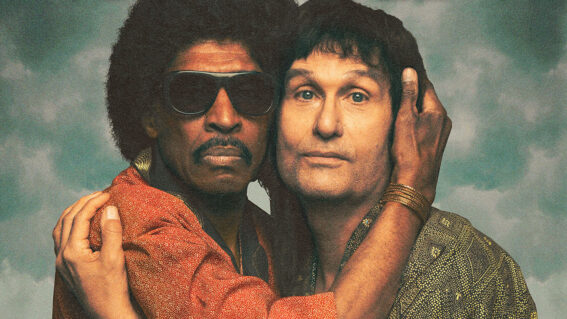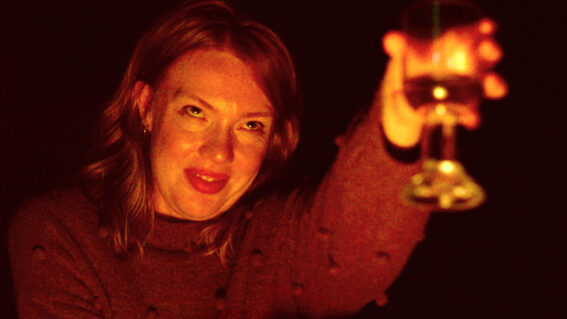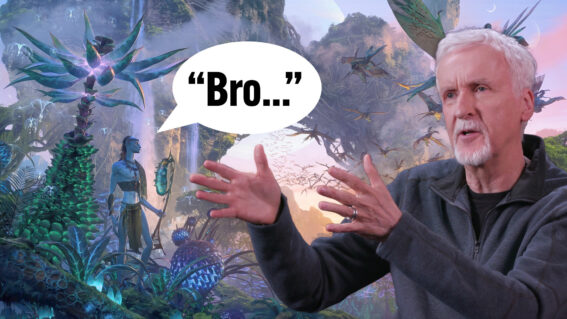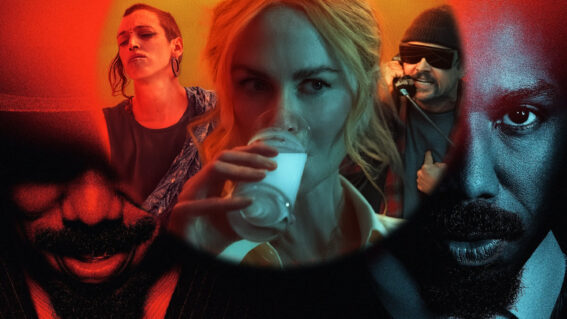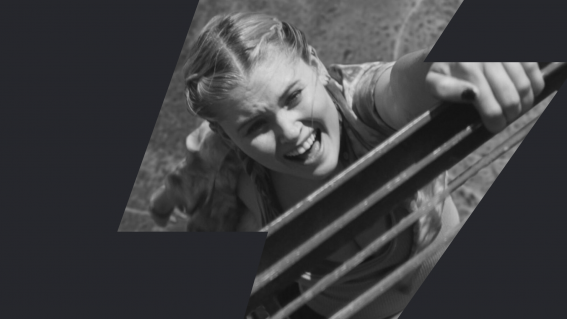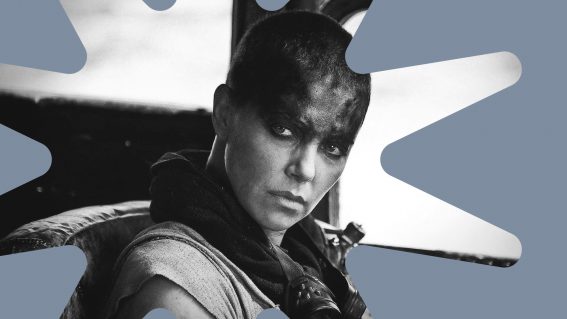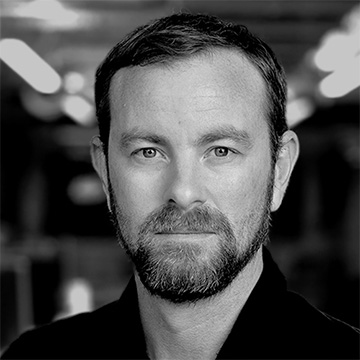Shayne Carter doco, near-future Tokyo, bleak Middle Ages: our latest NZIFF minis
Our writers share their thoughts on this year’s Whānau Mārama: New Zealand International Film Festival selections.
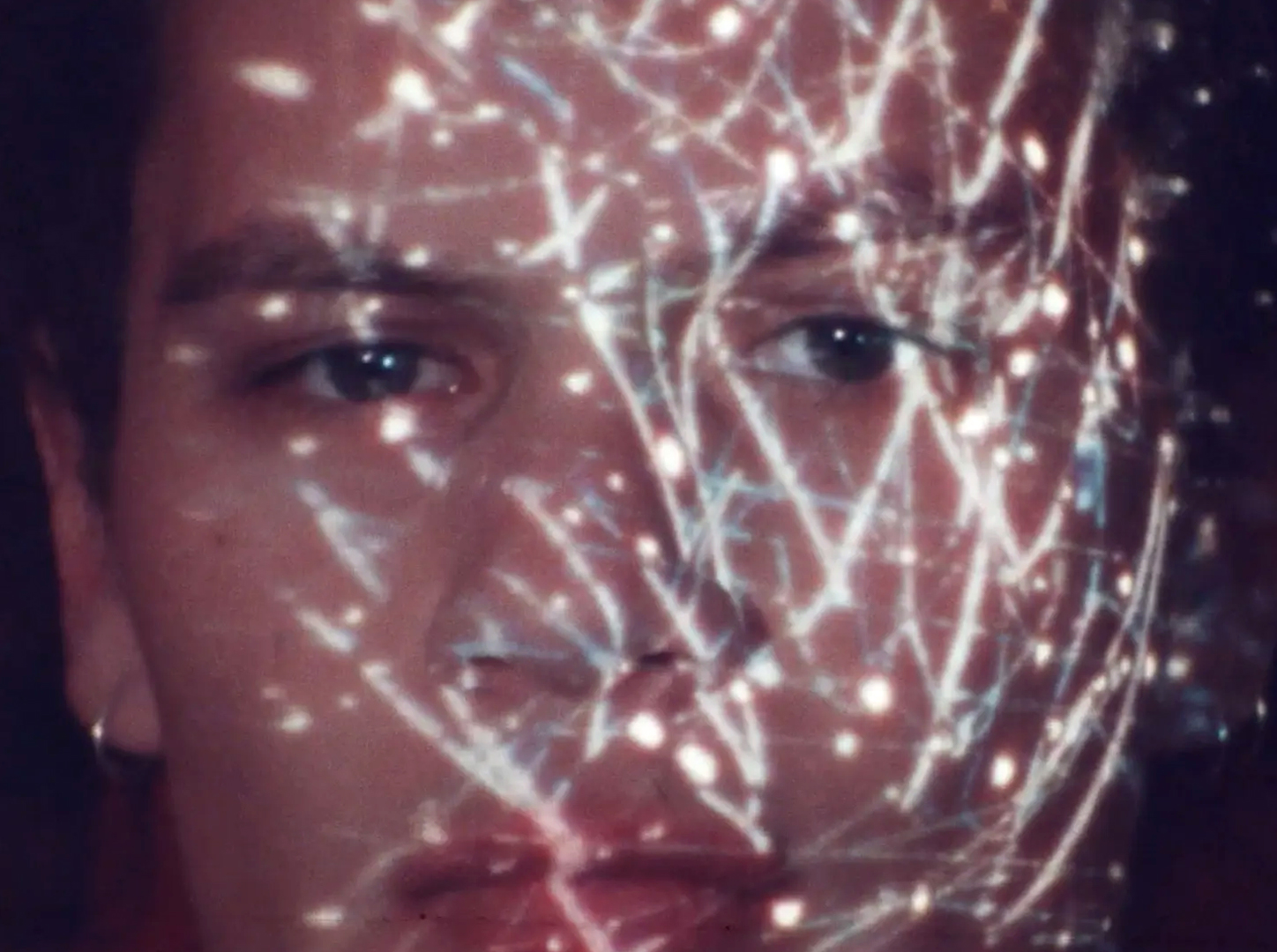
This year’s Whānau Mārama: New Zealand International Film Festival is now underway, and features plenty of gems.
Check out what we’re watching, and keep checking this page for our latest reactions, updated throughout the festival.
Latest NZIFF minis | Minis A – M | Minis N – Z
More related reading:
* Seven picks from the NZIFF 2025 programme
* Seven more picks from the NZIFF 2025 programme
* NZIFF interview: Art imitates life in Workmates
* NZIFF interview: Canterbury, cannabis, cannibals and The Weed Eaters
Life in One Chord
There’s a lot of ground to cover in Shayne Carter’s life, as readers of his superb memoir Dead People I Have Known will attest. That work is drawn on here, joining forces with a wealth of archive footage, and time spent with Carter under the watchful gaze of director Margaret Gordon. Jeez, he can be a tough one to pin down sometimes, and I’m not sure Gordon discovers a hell of a lot that’s new, but this is nevertheless a good watch, a trip through Carter’s history that’s not dogmatic at what it documents (thankfully doesn’t try to list every Dimmer member, for instance). A great companion piece to his written work, there’s pleasure to be had in hearing him reminisce and crack jokes, even if his prose proved more meticulously crafted. Have we been let in enough by either? Well, that’s up to Shayne, isn’t it.
STEVE NEWALL
Happyend
Despite its near-future Tokyo setting, don’t mistake this for Akira. Instead, Happyend is a coming-of-age tale reminiscent of 60s counterculture cinema. The surveillance tools and dance music may be new, but the story of students discovering themselves through protests small and larger in scale against authoritarian overreach is a classic setup. Juggles lots of elements, not entirely successfully, but also captures the bittersweetness of growing up.
STEVE NEWALL
Harvest
Man, the olden days used to be bleak (bleak a.f., to be honest). You quickly feel the cold and damp of a village in medieval Scotland, before the grimness of the setting gives way to narrative chills—the mistreatment of three outsiders, the arrival of a new lord. Both grubbily authentic and trippily hallucinogenic in its own ways, Harvest paints a dim picture of humanity, detours into witchcraft, torture and class disparities of the past all carrying echoes of our present. Survive all that, and it’s mesmerising.
STEVE NEWALL
Eddington
I hated Ari Aster’s Beau is Afraid. So why did his next film, one that also literalises fears lurking in our minds (but of the online brainworms kind rather than the Freudian) resonate so differently with me? Both star Joaquin Phoenix, and he’s great in both—perhaps it’s in the timing, with peak-pandemic isolation and craziness front and centre here. We may no longer grapple with COVID in the same way as a few years ago, but what it brought out into the open lives and breathes in MAGA, POTUS, and probably some other acronyms that capture worldviews reduced to incompatible ‘truths’. No viewpoint is spared being depicted as siloed here, and as this thing takes flight, the ways it departs from observable reality somehow capture something that resonates as even more real.
STEVE NEWALL
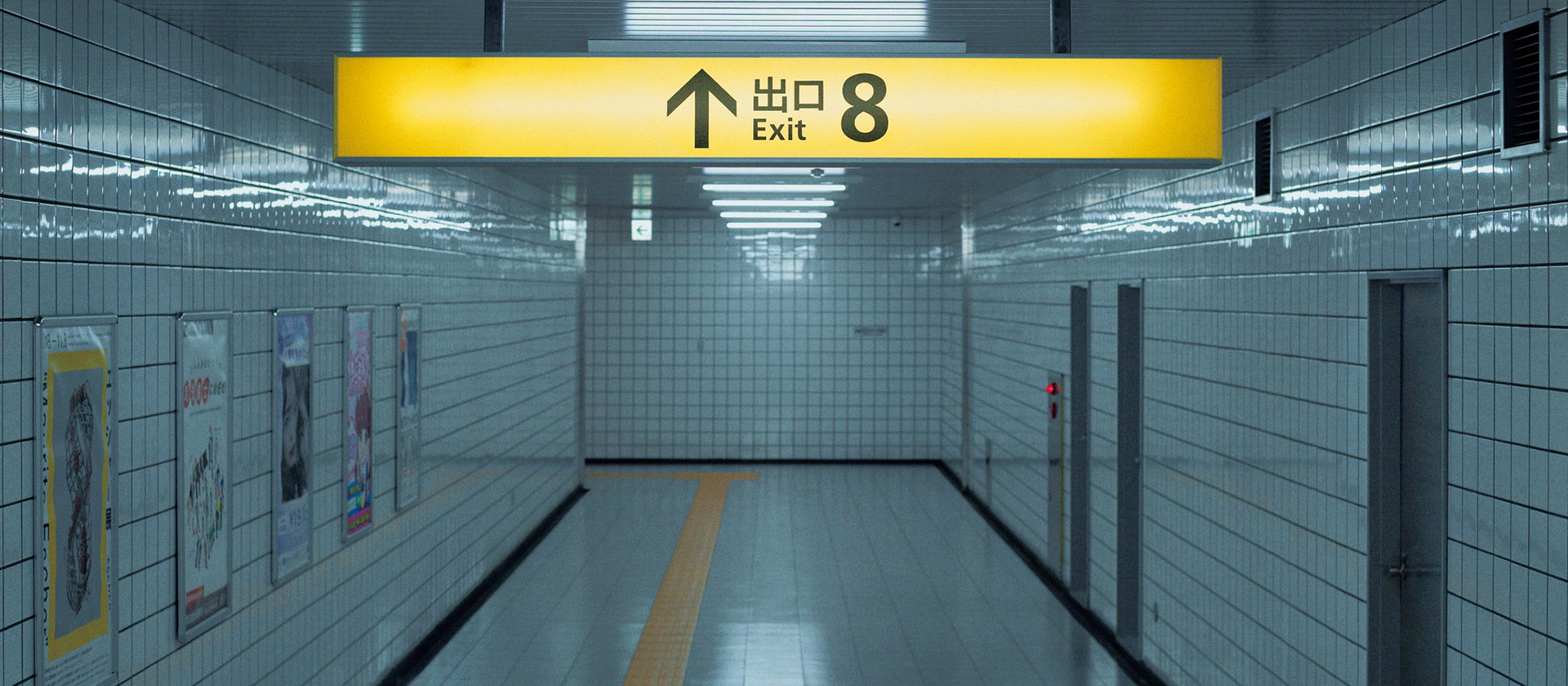
Exit 8
You’ve probably never seen a video game adaptation that replicates the experience and frustration of gaming quite like this. A small loop of tiled Japanese subway corridors are revisited over and over and over and over and over again, with the principal character stuck in a loop and tasked with spotting anomalies in the environment to progress. Fluid, oner-aping cinematography enhances the fear of what’s around the next corner, in an experience that’s unique but not immune to flaws—though still very well worth the growing hypnotic horror on the big screen (and in surround sound). Good late addition to NZIFF (though I disagree with their quoted programme note ‘no jump scares’ and so would others in the Hollywood Avondale audience).
STEVE NEWALL
Predators
Though what filmmaker David Osit reveals about early 2000s TV phenomenon To Catch A Predator is perhaps already fairly evident, this remarkably clear eyed and surprisingly moving documentary unpacks a particularly abhorrent cultural moment with admirable grace, nuance and empathy. Exposing a project more interested in queasy gotcha moments (and a fantasy about a group of people that it doesn’t count as human) than why its subjects do what they do (or how their victims are impacted by it), Predators is most riveting when Osnit draws on his personal experience with the show.
KATIE PARKER
Sorry, Baby
Warm, quiet and understated, Eva Victor’s directorial debut has won widespread praise for its thoughtful meditation on an experience that will be familiar in one way or another to many women. Though I found it all a little bit too girl-who’s-going-to-be-ok-meme-esque at times, and not nearly as uproariously funny as some audiences, I appreciated Sorry, Baby’s hopeful and heartfelt approach and refusal to sensationalise its subject matter.
KATIE PARKER
Sorry, Baby
Gutting and crack-up in equal measure, this is a clever and thoughtful film that presents the complexities of a heavy topic with deft sensitivity. People have been quick to compare Sorry, Baby to Fleabag—but it’s a gentler humour and slow series of small revelations that uncover weight at the heart of this film’s narrative. Refreshingly clear-eyed about how we make sense of the things that happen in our lives, Sorry, Baby is a quiet gem.
RACHEL ASHBY
Sentimental Value
I liked this one more than The Worst Person in the World, but after seeing both, I’m pretty sure Joachim Trier films aren’t really for me. They’re definitely not bad, with great performances and a wonderfully mature tone, but neither I’ve been able to fully connect with. Sentimental Value does eventually deliver an undeniably beautiful ending, I just walked away from it feeling mildly impressed but unsatisfyingly unmoved.
DANIEL RUTLEDGE
Brand New Landscape
A restrained family drama as much about mood as it is plot, this recalls Ozu and Kore-eda in subject and emotional beats, but trades their warmth and poetic touch for something cooler and more clinical. Conversations about divorce, reconnection, and domestic drift are delivered with matter-of-fact flatness, which is punctuated occasionally with loud, raw outbursts. The contemplative tone offers plenty to vibe with for fans of Japanese family dramas, who will also undoubtedly appreciate the masterful evocation of the city of Tokyo.
DANIEL RUTLEDGE
Resurrection
I understood maybe 70% of what was going on here but was 100% immersed throughout Bi Gan’s colossal, kaleidoscopic anthology epic—a perfect ratio for a film wanting to relay the world of dreams. Woozily paced and sumptuously shot with a muscular production that mightily lifts its love for cinema history, this is an easy highlight of my festival. Heavily recommend watching Gan’s 15min film A Short Story to get a good impression of what to expect here (he also uses a very similar, surreal, spectacular shot in both films).
LIAM MAGUREN
Anchor Me – The Don McGlashan Story
Don McGlashan’s discography spans from weird to wide appeal, and here Shirley Horrocks takes a chronological path through the living legend’s output. While there are insights to be had about McGlashan’s relationship with the creative process, I don’t feel I came away knowing a whole lot more about him as an individual (outside an impactful family tragedy). Nevertheless, there’s plenty to draw on in moving through Don’s formative musical experiences, and then in Blam Blam Blam, From Scratch, The Front Lawn, The Mutton Birds and as a solo artist. The strong visual accompaniments to much of his work, and his seeming fearlessness as a performer, are apparent throughout, with glimpses of some shorts and vids nothing short of magnificent on the giant Civic screen.
STEVE NEWALL
Notes From A Fish
Filmmaker Tom Levesque’s follow-up to Shut Eye (another DIY effort that played at NZIFF) makes for solid entertainment, similar to those French farces where the plot isn’t as important as the absurdity of the situations it generates. Co-directed by star Romy Hooper, who plays an overtly passionate marine life detective opposite Emilio Mancilla’s under-enthused wannabe author, the film moves at the speed of panic which makes the brisk 82-minute run time fly by. Some jokes land well while others rely more on being outrageous than witty and the story makes the odd decision to deplete the stakes well before the climax, but while there’s a nagging sense of a better movie hiding in Notes from a Fish, there’s an equally powerful feeling of admiration for a film shot in 10 days for $10,000 that moves and entertains this confidently.
LIAM MAGUREN
OBEX
Starts off as quite a charming look at the daily life of an aloof gentleman who lives alone with his dog in 1987. I also enjoyed the gradual, creepy, lo-fi turn into techno horror. Unfortunately, it all falls apart with a sudden genre shift to fantasy adventure, exposing the tiny budget like sunlight blasting through a cosy cave. Desperately needed people like the Viva La Dirt League crew to punch up the humour to make this section salvageable but all you’re left with is some half-jokes, shoddy side characters, fuzzy backstory, and a last-minute attempt to wrangle a moral from this story. Would have honestly preferred watching 90 minutes of this man and his dog living their happy lives by themselves.
LIAM MAGUREN
OBEX
Albert Birney’s monochromatic multimedia-thriller fuses reality and gaming, as a dog owner reaches Tron-like into the computerised world of OBEX to retrieve his furry friend. With a twisted nostalgia for early computer gaming, it’s a waking dream; a cerebral, retro ride that poses questions about our ability to distinguish between reality and fantasy in our merging on and offline worlds.
ADAM FRESCO
Chain Reactions
Documentary catnip for horror and movie fans, focusing on interviews with five artists and their reflections on Tobe Hooper’s seminal 1974 horror, The Texas Chain Saw Massacre. Talking heads include author Stephen King, comic Patton Oswalt, and prolific Japanese horror maestro Takashi Miike. A lovingly assembled documentary offering both insight and outtakes, it’s a fascinating dive for fans into the legacy of a once-shocking horror that’s now a chain-cold classic.
ADAM FRESCO
Pavements
Full disclosure, I wasn’t a Pavement-devotee going in. As an intro for newbies it may not fill in all the gaps but, despite some moments teetering on the edge of Spinal Tap muso-pretention, Alex Ross Perry’s rockumentary has enough upbeat indie flair and imagination to avoid cloying cliché and keep even the most Paved-skeptic interested and entertained throughout.
ADAM FRESCO
The Shrouds
Scanners, The Fly, and Dead Ringers made me a David Cronenberg body-horror nut, but oh how the mighty have fallen. Just when I thought Cronenberg couldn’t cap last year’s criminally dull Crimes of the Future, this latest musing on mourning, grief and loss falls flatter than a cardiac monitor attached to a rock. Weighed down by dire dialogue and baffling characterisations, not even the likes of Diane Kruger, Vincent Cassel and Guy Pearce can salvage a hard slog that had me hoping someone would wrap me in a shroud and wake me when it’s over.
ADAM FRESCO
Hard Boiled
Still a stunning knockout on the big screen, John Woo’s seminal, 1992, kick-ass Hong Kong action flick remains as hard and thoroughly boiled as ever. Chow Yun-fat and Tony Leung rock in a cop versus gangster tale that takes a back seat to the fist-pumping, heart-thumping action set pieces. Staged and shot with deliciously over-the-top panache, it’s a violent bullet ballet of dazzlingly choreographed mayhem in which moments of incredulity are tempered by hilarious sight gags—from a peeing infant extinguishing our hero on fire, to slow-mo explosions, gravity-defying feats of physical prowess, and enough bullets to make Michel Bay blush.
ADAM FRESCO
Notes From A Fish
When Leroy’s muse is fishnapped, a wild quest begins through the aquatic underbelly of Auckland. With pretty much all involved pulling double-duty (and more), it’s hard not to wish best fishes to the cast and crew who reel in a big-hearted, fun, and quirky Auckland-set adventure that punches well above its budget.
ADAM FRESCO
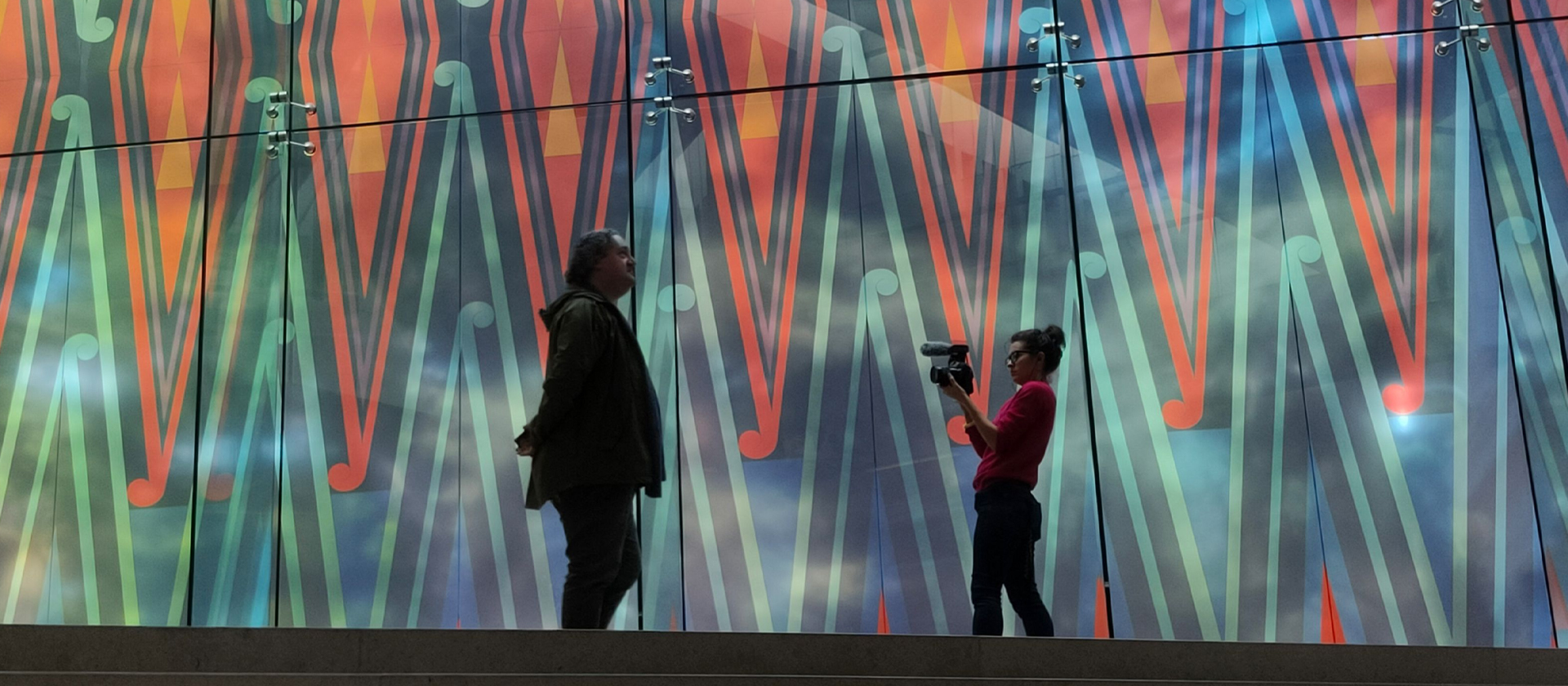
TOITŪ Visual Sovereignty
If this was simply a look inside the process of curating modern Māori art, TOITŪ Visual Sovereignty would have held my attention just by following the mellow, mindful and mana-filled presence of curator Nigel Borell as he tames the whirlwind of responsibility that is selecting and presenting Aotearoa’s most engaging indigenous works. But director Chelsea Winstanley casts her net much wider, capturing a compelling microcosm of contemporary colonialism at work. Seemingly in praise of what Māori artists are expressing while being oblivious to the irony of their actions, the institutional force in question really shows themself up in Zoom hui—some of which feel almost scripted for a cringe sitcom like The Office. They’re one of the two people I angrily shook my head at during the World Premiere screening; the other was directed at myself for not catching all this stupendous art when the exhibition launched.
LIAM MAGUREN
The Mastermind
At this green stage of his career, Josh O’Connor is en route to securing a very specific type-cast as ‘useless posh guy who does art crime’ (first La Chimera, and now The Mastermind) and I’ll tell you what, he’s the man for the job. He plays the infuriatingly selfish art crim at the centre of Kelly Reichardt’s latest feature with a kind of dirtbag charm and innate hopelessness: he’s every guy you fancied at art school, but worse. The Mastermind is unhurried and wry storytelling, laying out the futile vanity of O’Connor’s James against a backdrop of bubbling social unrest and 1970s domestic tension. Some might have found the film’s conclusion a little on the nose symbolically, but it worked for me. Men- am I right?
RACHEL ASHBY
Went Up the Hill
Director Samuel Van Grinsven’s latest might end up being the most stonkingly gorgeous film I see at this year’s fest. The deeply saturated Canterbury ranges paired with the hard-edged, brutalist, architecturally delicious home central to this distinctive ghost story sets the morose tone in marble. Too much, perhaps, as I felt this film’s aversion to warmth kept our two grief-stricken strangers (Dacre Montgomery and Vicky Krieps doing fine work here) from earning a bond significant enough to make the ending truly stick. I also got frustrated at some of the contrived body-swapping possession, though they did lead to some compelling, confronting, cataclysmic moments.
LIAM MAGUREN
The Weed Eaters
Loved it, loved it, loved it. I went into The Weed Eaters hoping for early-era Peter Jackson resource-stretching, dryballs Aotearoa humour and genre gross-out appreciation, and while it’s not as excessively gory as PJ, the pic paid off in spades. Punchy pacing and a tight edit (just 80 minutes—perfect!) help this debut feature avoid overreach, while it authentically incorporates genre elements (horror, stoner movie) that we’ve seen go wrong too many times in other, pandering films that don’t understand the terrain. Great to see a fresh crop of Aotearoa personalities conveyed on screen, from hapless dudes portrayed in a less cringily self-aware manner than their Conchords/Waititi screen predecessors to the strong female leads (special mention to Annabel Kean’s balancing act between lackadaisical stonerisms and simmering menace).
STEVE NEWALL
Sorry, Baby
Yep, I’m adding to the hype train: this film’s a total winner. Eva Victor proves herself as a modern triple threat—assured direction, a whip-smart script, charismatic on-screen presence—with a film that miraculously pours tenderness over an acidic situation. Filled with funny quips that never downplay the seriousness of the hurt plaguing the lead character, Victor astutely shows us how there’s never one quick fix to healing such pain. It’s the smaller moments, rather, scattered throughout the years, that can build the kind of wisdom where closure can be sought on your own terms. That hit me profoundly. So did the dick jokes.
LIAM MAGUREN
Peacock
This very Austrian black comedy follows a chap whose work requires him to check his identity at the door, and who gradually struggles to reconcile who he really is within his relationship and personal life. As funny as it was cautionary, this had hints of brilliant Swedish flick The Square at times, albeit a slightly smaller film than that was. If you like watching well-put-together people unravel and lose their veneer over the course of a couple of hours, hitch your tail feather to Peacock!
MATTHEW CRAWLEY
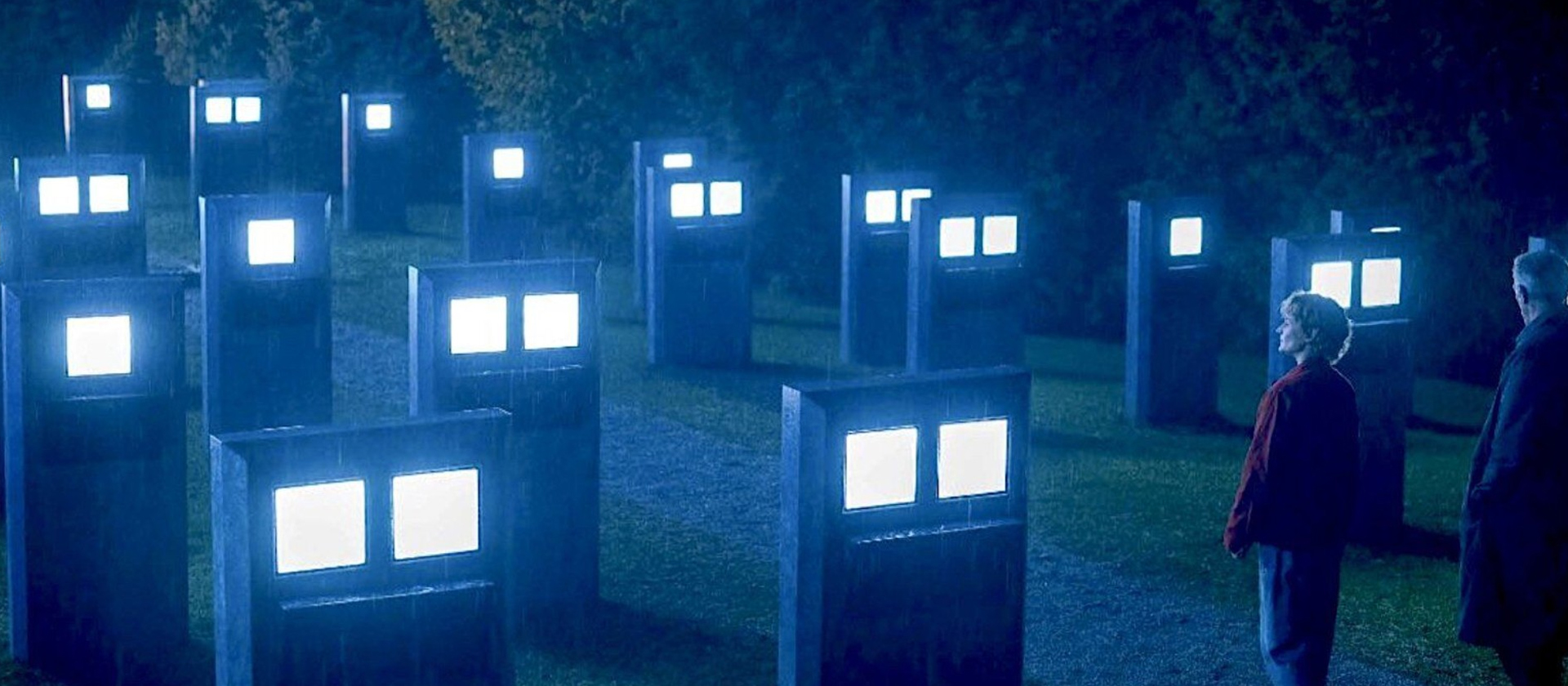
The Shrouds
Weirdly, it seems there was a printing error in the festival programme, because David Cronenberg’s latest outing was almost certainly written, directed, produced by, and starring Tommy Wiseau. Perhaps the dialogue was meant to be this stunted and laughable, but there were comparisons being made to Arnie in Vincent Cassel’s English language performance, and Guy Pearce’s 90s hacking terminology was only slightly less dated than the treatment of the female characters. If The Room meets Black Mirror sounds like a bit of you, by all means … get wrapped up in The Shrouds!
MATTHEW CRAWLEY
Sirât
Watching this on the gigantic Civic screen (and listening through its powerful PA), the cavernous and criminally underattended jewel of Auckland venues was the perfect place to experience Sirât‘s gorgeous, incredibly tense ride through the raves, deserts and mountains of Southern Morocco. Heeding the advice of Matthew Crawley’s mini, I went in as unspoiled as possible and can recommend this approach—echoed by a heckler who wisely interjected the pre-film introduction to head that possibility off at the pass (this year’s wobbly spoken intros have prompted many unimpressed conversations among festivalgoers—what gives, NZIFF?). Seen as big and loud as possible, it stuns eyes, rattles ears and shakes nerves. Superb.
STEVE NEWALL
Lurker
Superior psychological thriller sees a young man inveigle his way into the orbit of a pop star—the modern equivalent of ambitious players vying for favour in a royal court. Desperate to strengthen the relationship and see off rivals, Lurker’s made all the better by said pop star’s music being vacuous and shit (yet plausibly low-tier successful), making all the smoke blown up his arse all the more empty and entertaining. Could have come to an abrupt stop and satisfied as a character study, but finds a final act to lurk longer in your post-movie recollections.
STEVE NEWALL
Trenque Lanquen
Clocking in at over four hours, this episodic Argentinian mystery flick was enjoyable, but still a real tailbone tester. Trenque Lanquen has drawn comparisons at every turn to Twin Peaks, it being a small town with weird shit going on, and everyone seemingly connected to a missing young woman called Laura. Don’t get too excited by that comparison, it’s not quite worthy of sharing that pedestal, but it does have in common that its first half was compelling and gripping, while its second part attempts to have the mystery linger using increasingly ridiculous means. Worth a watch, but BYO cushion.
MATTHEW CRAWLEY
Ebony and Ivory
A hallucinatory imagining of what “almost definitely” happened between legally-not-Paul McCartney and legally-not-Stevie Wonder in Paul’s SCOTTISH COTTAGE. Fans of Tim and Eric, I Think You Should Leave and the director’s first film The Greasy Strangler will find a lot to revel in here, as the two demented not-legally-superstars go head-to-head. You’ll never look at vegetarian schnitzel the same.
MATTHEW CRAWLEY
Sirât
And here I was, thinking Gaspar Noé’s Climax would be the only film I’d see in The Civic (NZIFF 2018) that would twist my stomach in knots while pumping EDM into my nightmares. Sirât by name, Sirât by nature, this is an uncompromising barrage of an experience, though calling it an “auteur Mad Max” is a bit misleading. We’re following janky vehicles in the desert, sure, but the vibes are closer to David Michôd’s The Rover and Joe Carnahan’s The Grey, where grimness and thrills co-exist in a decaying environment. It’s also marinated in metaphor, not that you (re: I) need to “get it” to be slammed by this absolute ride.
LIAM MAGUREN

Prime Minister
Watching this in a sold-out Civic Theatre was an emotional, somewhat cathartic experience as a look back at the very best and very worst of this country’s recent history. Filmed largely by Jacinda Ardern’s husband—who captured deeply private moments and was seemingly given unimpeded access to her professional sphere—it feels even more intimate than her recently released autobiography, making it deeply beautiful at times, uncomfortable and even excruciating at others. A deft, greatest-hits-style recap of her major achievements and unbelievable challenges in office, this will disappoint viewers seeking an objective or politically definitive portrait of Aotearoa’s 40th prime minister. But for those wanting uniquely personal insight into Jacinda beyond the public persona, it offers deep rewards, most potently through unflinching close-ups that capture history unfolding across her face. With everything that’s happened over the years, it’s easy to forget how singular a leader she was. Prime Minister serves as a powerful and openly heartfelt reminder.
DANIEL RUTLEDGE
Predators
Astounding documentary about perhaps the most compellingly bleak and disturbing reality TV show ever made. Non-judgemental but unflinching, it begins as a clear-eyed exploration of the notorious American television phenomenon, academically dissecting the horrific spectacle of justice as entertainment and interviewing many of those involved. But it evolves unexpectedly into something deeper, something more personal and more provocative. It ends not with resolution, but on a quiet, hauntingly profound note.
DANIEL RUTLEDGE
Lurker
About an hour in, I grew pretty frustrated at the lack of momentum in this otherwise very well made look at the vulture-eat-vulture world of being Insta-famous and famous adjacent. Little did I know, writer-director Alex Russell was setting up traps for the film’s devilishly compelling final act, leaning hard into Théodore Pellerin’s stupendous Nightcrawler-esque turn. Had fun imagining Abel Tesfaye watching this movie and realising how a proper film tackles the vanity and insecurity of modern fame while he cried into a massive box of unsellable Hurry Up Tomorrow blu-rays.
LIAM MAGUREN
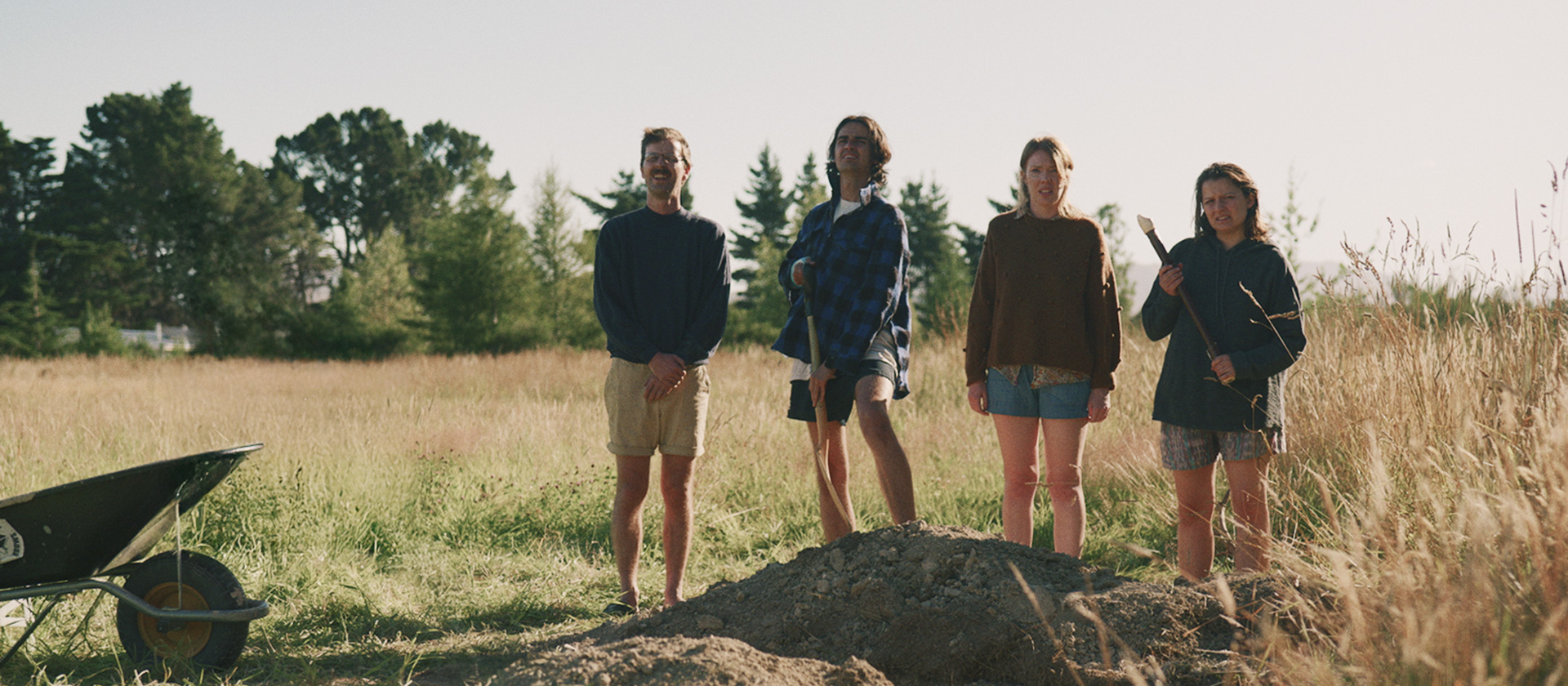
The Weed Eaters
Had I not been in attendance at The Weed Eaters‘ premiere screening at the Civic on Saturday night, I would have said the seemingly unanimous praise it received was likely the result of family and friends gassing up the makers. Not so! With great performances, perfect pace, and some deliciously revolting moments, it’s the kind of gleefully gory, hilariously deadpan romp that New Zealand horror movie dreams are made of.
KATIE PARKER
Pavements
I was in the funny position of not really knowing anything about Pavement going into Alex Ross Perry’s documentary/biopic/satire. 2 hours and 8 minutes later I can’t say I am much more enlightened, and in fact feel more baffled by Gen X than ever. An inside joke that I have only myself to blame for not getting, I thought the music was good, the film was inventive and that I would rather be set on fire than spend five minutes alone with Stephen Malkmus.
KATIE PARKER
The Shrouds
Depicting death and dying in the digital age as only David Cronenberg can (erotically), I loved this weird, surreal, touchingly personal story of tech gone not so much mad as morbid. Featuring the kind of deliberately stilted performances and vague plot that will inevitably be interpreted by some audiences as “bad”, The Shrouds’ cold, aloof examination of grief belies a strangely moving story inspired by the director’s own loss. Sexy, sad and so funny, those willing to meet Cronenberg halfway will be rewarded with something special.
KATIE PARKER
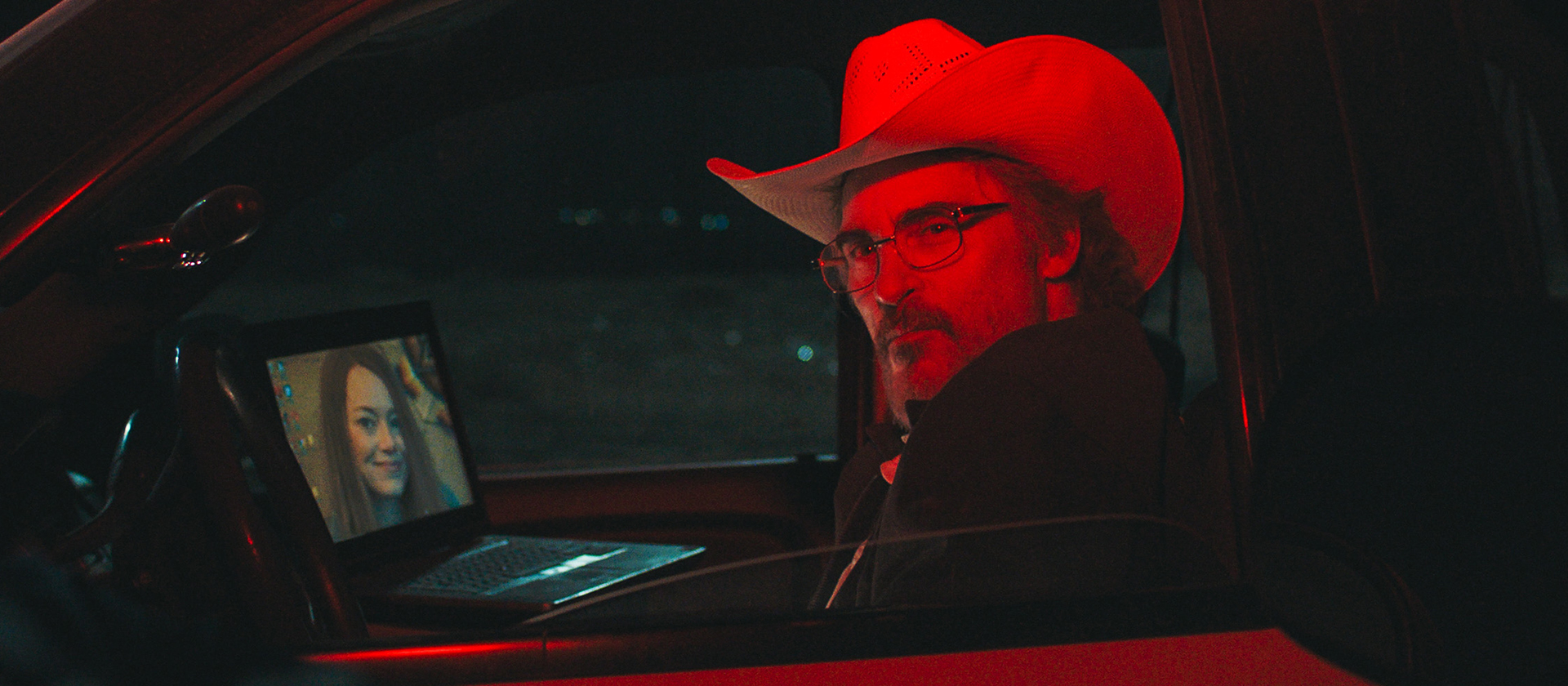
Eddington
Black lives matter protests, antifa, youtube grifters, the advent of AI and, of course, the pandemic that killed lots and lots of people, are all fodder for Ari Aster’s ambitious and deliberately antagonistic Covid era satire, but an overstuffed agenda and an overreliance on low hanging fruit left a bad taste in my mouth—or is that the whole point? A portrait of a small American town brought to its knees by the brain-breaking reality of the pandemic and the culture wars that ensued, Eddington is ragebait as cinema, a vision of social alienation and casual cruelty becoming as contagious as a virus. Listening to a nearly sold-out Civic audience roar with laughter at a character’s use of the word “retarded”, I guess it’s safe to say that Aster’s point was made.
KATIE PARKER
Twinless
Dylan O’Brien is really bloody good as a big-hearted bro-y dumb-dumb navigating the loss of his twin brother. But this is writer-director James Sweeney’s show, casting himself as the nexus of the film’s psychologically warped and emotionally twisted tale of friendship, loneliness, and desperation. Narratively inventive with proper dramatic heft that fuels the abundance of cringe comedy, this would pair nicely with Andrew DeYoung’s Friendship for anyone daring a double feature on destructive clinginess.
LIAM MAGUREN
It Was Just An Accident
Equal parts tragedy and farce, Jafar Panahi’s Palme d’Or winning story of revenge and justice in the face of political oppression by the Iranian regime is a surprisingly comedic, crowd-pleasing affair—particularly considering Panahi has been previously imprisoned for filmmaking by his government, and had to conduct production for it in secret. The final 20 or so minutes, in which this levity gives way to the dread and horror that has been bubbling beneath are not so much a bait and switch as the revelation of something that was hiding in plain sight all along.
KATIE PARKER
Stranger Eyes
Slow, cold, and isolating by design, this Singaporean surveillance mystery sure knows how to make the audience feel like the story’s detached observers. Director Siew Hua Yeo favours gloom over suspense, which works tremendously when unveiling the emotionless zones our protagonists wander around when their baby vanishes, but not so much when suppressed feelings finally erupt, the sterile tone rendering these moments inert. Though it never came close to moving me, it sure got me thinking about our doomed desires to absorb projected personalities on a screen.
LIAM MAGUREN
Read all our NZIFF minis: Minis A – M | Minis N – Z












